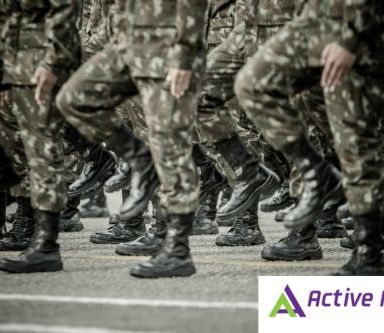
Veterans Day is on Nov. 11. On this day, we remember and honor the sacrifices our veterans have made for our country. We'd like to pay tribute to veterans and discuss an often-overlooked aspect of their service: hearing loss. As a veteran-owned company, we wanted to talk about the prevalence of hearing loss in the veteran community, what resources are available and how ear specialists of Omaha can provide support.
Veterans and hearing loss
Hearing loss is one of the most common health issues veterans face, often as a result of their experiences. Exposure to loud noises, including gunfire, explosions and aircraft engines, can lead to significant hearing damage. In fact, veterans are 30% more likely to have severe hearing impairment compared to non-veterans.
The prevalence
Veterans are at a higher risk of noise-induced hearing loss due to the nature of their duties. It's estimated that nearly 2.7 million veterans receive disability compensation for hearing loss, making it the most prevalent disability. A ringing or buzzing sensation in the ears, called tinnitus, is another common hearing issue among veterans. It's estimated that over 2.5 million veterans receive compensation for tinnitus.
The support
Several resources and support systems have been established, including VA hearing health care and veterans service organizations. The Department of Veterans Affairs (VA) provides comprehensive hearing health care services, including hearing evaluations, hearing aids and rehabilitation programs. Veterans are eligible for these services if their hearing loss is related to their military service. Organizations like the Disabled American Veterans (DAV) and the Veterans of Foreign Wars (VFW) offer support and advocacy for veterans with hearing loss. They can help veterans navigate the VA system and access the benefits they deserve.
Cochlear implants, hearing aid technology and mental health support are also available. In cases of severe hearing loss, cochlear implants may be recommended. The VA offers cochlear implant programs to eligible veterans. Veterans can access the latest hearing aid technology through the VA, including devices that are specifically designed to address the unique challenges they face. And, since hearing loss can lead to social isolation and mental health concerns, the VA provides mental health services to address the psychological impact of hearing loss.
How you can help
Supporting veterans with hearing loss goes beyond government programs and services. Through spreading the word about the prevalence of hearing loss among veterans and the available resources, we can encourage veterans to seek help for their hearing issues. It’s also important to show empathy and patience when communicating with veterans who have hearing loss. Face them when speaking, speak clearly and consider using visual cues.
Advocating is also key. Support legislation and initiatives aimed at improving hearing health care for veterans. Advocate for accessible and affordable hearing aids and services. You could also consider donating to veterans' organizations that provide hearing health care and support.
Visit your ear specialists of Omaha
We want to make a difference in the lives of those who have served and who are struggling with hearing loss. If you or a loved one, especially those who have served in the military, are having hearing difficulties, know that we are here to help. We are in-network with the VA Community Care Network, which can help with funding. Contact us today to learn more about how we can serve you!






Comments